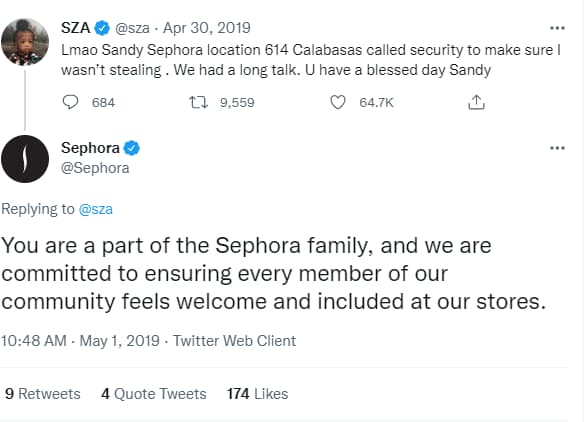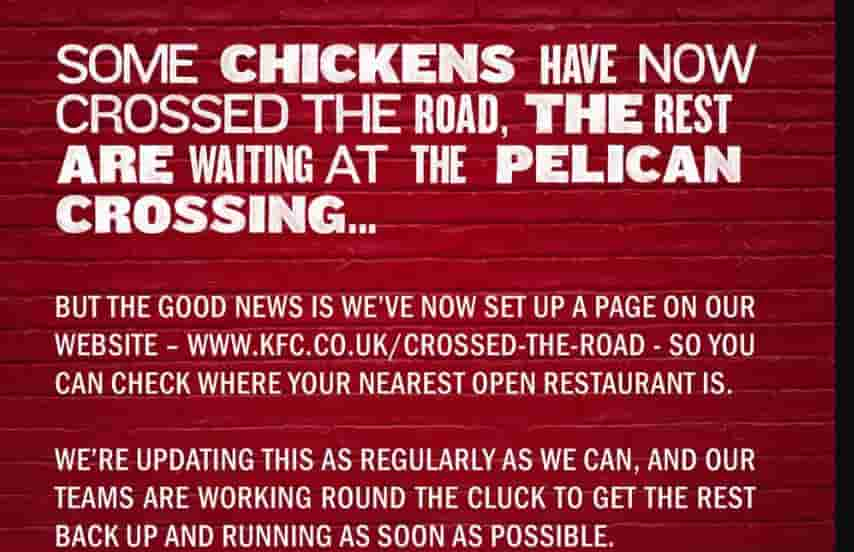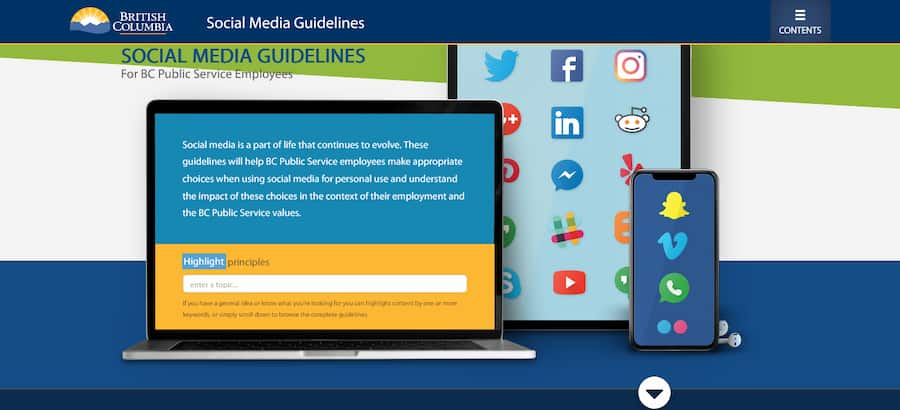How to Navigate an Online Social Media Crisis
A social media crisis can happen to any brand, including big or small industries, local businesses, and even individuals.
This may be a social media crisis in the form of “X” users’ complaints or an insensitive post from your brand. While your immediate reaction might not be the best, how you handle the social media crisis going forward would determine the impact on your brand.
Social media crises are sudden negative activities that can adversely affect your reputation. However, having a social media crisis management plan would prevent and limit the impact of these happenings.
This article will discuss six ways to manage a social media crisis and turn them around for your brand:
- Be responsible
- Monitor what is being said about your brand
- Create a crisis communication plan
- Draft a social media policy
- Communicate effectively with your team
- Secure your social media accounts
Let’s get started.
Be Responsible
Your first approach to a social media crisis is to take responsibility for your actions. Whether or not you’re at fault, you must acknowledge the crisis and assure your audience that you’re working on making things better.
When addressing your audience, denying accountability for the situation might create public hostility. State the facts publicly and avoid making statements that assume or speculate on any aspect of the crisis.
Once, the hit singer Sza tweeted on social media about how one of Sephora’s employees accused her of attempting to steal from the store. Being a celebrity, her fans jumped in to defend her and threw shade at the brand.
The company officials took steps to take responsibility for their worker’s actions and apologized directly to the celebrity.
They also used the social media platform to announce their centralized diversity training for their workers. Sephora avoided future incidents and resolved the matter immediately using this proactive approach.
Monitor What is Being Said About Your Brand
While monitoring your mentions provides insight into people’s reactions, it also prevents escalating matters. Set up a listening tool to monitor conversations around your brand and analyze negative comments during a social media crisis.
Google Alerts can help you monitor brand name-included keyword searches, and tools like Mention monitors social media mentions in real-time and analyzes sentiments surrounding your brand.
Pro tip: Be proactive and use an email finder to reach out to aggrieved consumers via email before calling out your brand on social media.
Of course, the first thing to do when you notice negative sentiments around your brand is to acknowledge the issue. Then, determine the focal point for all communication related to this crisis. That is when you need a crisis FAQ page.
A crisis FAQ page centralizes all information in one place and prevents misinterpretation of your company’s response to the crisis. It also reduces the ripple effect of negative social comments by other readers and streamlines the answering process with a link to the FAQ page.
Create a Crisis Communication Plan
One of the most important things you can do as a business owner is to have a social media crisis management plan in place. By planning ahead, your business can be better prepared for any controversy that may arise on your social media pages.
According to a 2015 report by the ODM Group, 59 percent of business decision-makers have experienced a crisis in their company. That makes it crucial for you to have a ready-to-use crisis framework when things hit the fan.
This framework allows you to effectively develop a crisis communication plan in the shortest time and avoid negative feedback. Your communication plan allows you to be confident in your marketing team and how they handle these social media crises when they occur.
To create a good crisis management plan, you should follow certain guidelines such as:
- Choose representatives from your social media team to manage a multi-channel crisis.
- Train your team on handling crises with a clear crisis management strategy.
- Create a crisis communication plan for various problems that might occur.
- Monitor your social media activity often.
A comprehensive plan helps manage negative publicity and critical comments against your brand. It also lets people know that you acknowledge this crisis and would resolve it swiftly.
When writing out your crisis management plan, you must pinpoint the risks, stipulating them to their level of urgency. Create protocols that your team members can follow if a crisis becomes more severe than you anticipate.
When they were forced to shut down due to their shortage of chicken supplies, KFC used a crisis communication plan to manage the crisis. That allowed their social team to address the situation with humor.
After, they enlightened their customers on why the shortage was happening and what they were doing about it.
Creating a solid crisis communication plan lessens downtime when these crises occur. They also boost your brand’s confidence. Moreover, knowing your brand has a plan to deal with a crisis creates a stronger sense of well-being among your team members.
To ensure it works, carry out real-time tests of the crisis management plan. And analyze the results to identify necessary changes. This way, you ensure that all previously planned solutions are efficient.
Draft a Social Media Policy
Social media crises often result from posts on social media channels that go awry. But you don’t need to face this crisis before implementing a social media policy. Ideally, your marketing team should set up guidelines that guide your employees and prevent PR disasters. But if you haven’t, now’s the time.
A well-crafted social media policy must provide clear guidelines that reflect your brand’s culture. Some of what your social media policy should include are:
- Copyright infringement guidelines. Your social and marketing team should know how to use and credit content. They must be able to identify copyright-free content they can use and the ones to avoid.
- Acceptable content. You need to align your content to follow the current social media platform guidelines.
- Confidential guidelines. You must know when to interact with your audience. Some interactions with them should be in an open space, while others should be done privately. It’s crucial to know the appropriate time to do either to keep your brand trustworthy.
- Brand tone guidelines. Be clear on your brand’s social media tone of voice. Should it be goofy, witty, sarcastic, formal, or informal?
Mailchimp, for example, uses an informal tone for its brand. Using offbeat humor and a conversational voice allows them to relate with small businesses in a familiar and accessible way.
Social media policy ensures a consistent brand voice that, in turn, develops a more reliable and trustworthy identity for your brand. Creating a solid policy could prevent or manage social media crises when they happen.
Take a look at this visually-appealing social media policy below:
Using a simple and captivating social media policy, The Government of British Columbia sets boundaries and implores employees to make ethical choices when posting on social media.
You can use software tools online to create your social media policy that depicts your brand guidelines. These social media policies should also contain disciplinary actions alongside the given guidelines. This will ensure everyone on the team follows it judiciously.
Communicate Effectively With Your Team
Once a social media crisis occurs, you should have a plan to communicate with your team and let them in on what’s happening.
A social media crisis communication plan is effective because it prevents fake news and rumors from spreading. Ensure everyone in your marketing and social teams knows what to say and the right time to say it.
To communicate effectively, consider telling your team the following;
- What’s happening currently
- The social channel the crisis is taking place
- What actions to take
- What responses to make
That builds a healthy work relationship and prevents negligence. You may also organize open meetings. Alternatively, utilize visual presentations for retaining information. Doing this will ensure team members interact and develop ideas on how to effectively manage social media crises.
Secure Your Social Media Accounts
Sharing your social media passwords increases the chances of security breaches.
Limit and track your employees’ access to your brand’s social media accounts. And also, revoke access once they’re no longer working with you.
For extra security, regularly inspect your social media pages and people that have access to the accounts and set up a two-factor authentication system for your social channels. That gives you greater control over third-party members.
Social media platforms like Facebook and “X” allow you to add admins or managers to the same business profile. That makes it easier to protect your brand’s account information and give profile access to other social media managers. If the business account is compromised, the internal team can know who to notify from the stated account administrators.
Alternatively, you can use a social media management tool such as NapoleonCat and grant your team access to a third-party software rather than the social media profile itself. If you manage a large team of social media managers, you can even differentiate their access levels based on certain functionalities such as content creation, content publication, or comment moderation.
In Closing
Social media crises can give you a chance to build brand awareness and a generally stronger brand. However, this depends on how well you manage it.
Remain calm and take immediate action. Communicate effectively also and be transparent — your audience expects some accountability for your mistakes to win back their trust. Monitor your brand mentions and document every step you take when the crisis hits an ebb. This will help you checkmate the trends and patterns of a looming crisis.
Finally, work with a crisis communication plan to ensure your social media team passes the appropriate information at the right time.
And that’s how you manage a social media crisis!
Tags: Online Reputation Repair, Reputation Protection, Social Media Marketing.




